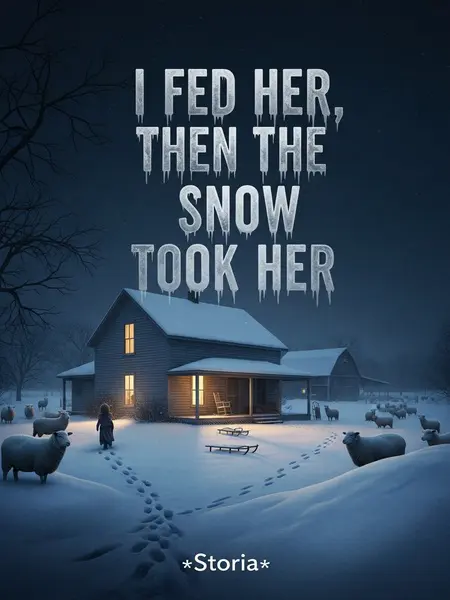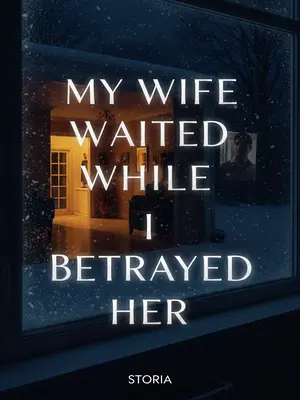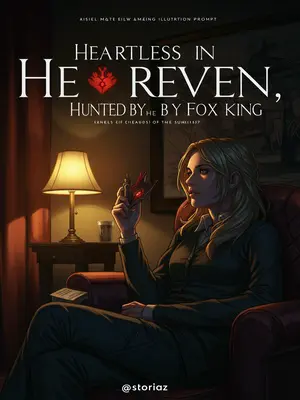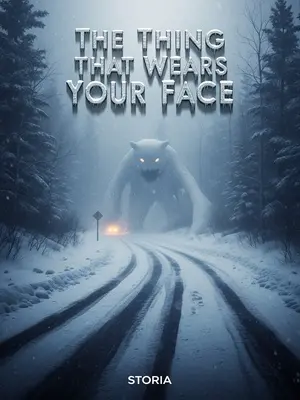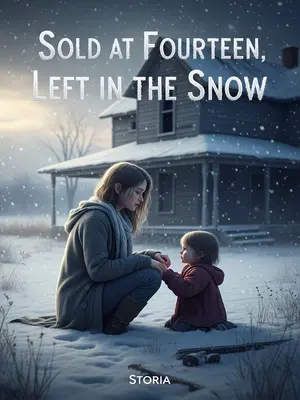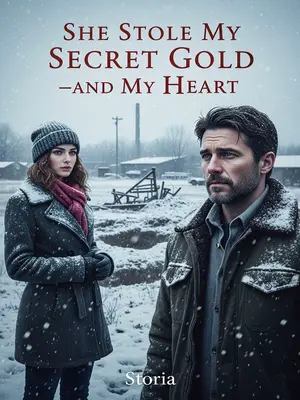Chapter 1: The Drumstick That Broke Us
Grandma secretly ate a drumstick, and instead of just a story told in passing, the memory burns in my mind: Grandpa’s fists slamming down, the crack of bone against floorboards, the metallic tang of blood in the air. He kicked her out—just kicked her—into the freezing snow.
The silence after the fight was so thick you could hear the old clock ticking in the hallway. Out in the yard, the snow glowed blue under the porch light. The cold stung every breath, biting deep into your chest, and the wind outside screamed through the siding, making the whole house shudder. Nobody wanted to open a door, not for anything. Grandpa’s heavy boots thudded down the hallway, and Grandma’s ragged sobs echoed back from the porch. The whole place felt like it was holding its breath. I shivered, pulling my knees to my chest, wishing someone—anyone—would move.
In the dead of a Midwest winter, she called out my dad’s childhood nickname, voice cracking, crying and begging over and over, her words twisting through the dark:
"Danny, Danny... Mama’s gonna freeze out here. Please, just open the door. Let me in."
Her voice carried through the boards, thin and desperate, the kind of pleading that made your bones ache. Sometimes I swear that house was built to trap the cold. And the sorrow, too. Every sound seemed to freeze and hang there, never escaping.
It was more than ten below, but somehow Grandma made it almost to dawn. She hung on, breath after breath, until the sun started to rise.
The wind rattled the windowpanes all night. I remember lying awake, every muscle tense, listening—hoping—for any sign that someone would get up and help her. But nobody moved. I held my breath, heart pounding, waiting for something to break the spell. By the time the sun scraped over the horizon, everything outside was still and white, like the world itself was holding its breath. I never forgot that hush.
Then, out of nowhere, a sheep appeared in our yard.
It was the strangest thing—a scraggly old ewe, its coat matted with ice and mud, just standing by the fence, as if it had wandered there from some other world. I stared at it through the window, not sure if it was real. Folks in town whispered about omens, but nobody could figure out where it came from. When I looked back at the house, the air inside felt thick—not just with unease, but with something sharp, like the smell before a storm. I could almost taste the tension.
Grandpa butchered it and made a pot of stew, but the meat was tough and dry, stringy in a way that stuck to your teeth. The kitchen filled with the heavy smell of raw wool and iron.
The smell of boiling mutton filled every room, heavy and sour. Grandpa’s hands were red and raw from the cold, but he worked the knife like he was carving something out of stone. My stomach turned at the sight. We all sat around the battered kitchen table, pretending not to notice the empty chair where Grandma should have been.
Grandpa gave a slow, crooked grin, flashing yellow teeth as he said, "Old bones are hard to chew."
He leaned back in his chair, eyes darting around the table, lips curled just enough to show he was enjoying our discomfort. The words hung in the air, and nobody dared answer. The only sound was the clatter of silverware on chipped plates, and my own heartbeat pounding in my ears.
Then, with a flourish, he pulled a chicken drumstick out of the sheep’s stomach and handed it to my little brother.
"Eli, everything Grandpa does is for you."
Eli looked up, wide-eyed, not sure if this was a treat or a test. The room went dead silent. Even the dog froze, ears perked, like he was waiting for some hidden cue.
But in my ears, Grandma’s voice kept echoing—soft, insistent:
The sheep must walk upright...
Her words slipped through the cracks, cold and sharp, whispering at the edge of my thoughts. It was the kind of thing that stuck with you, a warning or a wish—I couldn’t tell which, but it made my skin prickle.
Grandma had coughed for a whole year. She knew her time was running out, and all she wanted was one good bite of meat—just once, before it was too late.
She’d sit on the old plaid couch, wrapped in her faded quilt, hacking until her whole body shook. Sometimes she’d stare into the kitchen, eyes gone far away, and let out a sigh so deep it sounded like she was letting go of the world, breath by breath.
She’d say she’d worked her whole life, didn’t even know what real food tasted like. Sometimes she wondered out loud if she’d finally get a taste after she was buried.
Her voice would crack when she talked about the old days—how she’d scrubbed floors for rich folks, how she’d never had a Sunday roast, how maybe heaven had a kitchen with her name on it. That was her way of dreaming, I think. When the world had given her nothing but scraps, she built hope out of thin air.
I climbed up on the old couch, wiped away her tears, and whispered in her ear:
"Grandma, I have a way. Wait for me."
Her bony hand squeezed mine, cold but steady. The room smelled like mothballs and woodsmoke. For a moment, it felt like we were the only two people left in the world.
The house was pitch dark. I got up, flicked on a flashlight, and tiptoed into the kitchen, nerves buzzing.
Every step made the floor creak. I held my breath, ears straining for any sound from upstairs. The linoleum was icy under my bare feet, sending a shiver up my spine. The old fridge hummed in the corner, steady and low. When I moved the flashlight, the shadows seemed to jump, stretching long and thin across the counters.
Mom had roasted a chicken for my brother. I wiped my hands on my shirt, swallowed hard. My heart pounded as I tore off a little drumstick, then crept back to Grandma, hands shaking.
The smell was mouthwatering. Grandma’s eyes lit up at the sight, but she turned her head away, lips pressed tight, hands fidgeting with her blanket.
"How can an old woman like me eat this? This is for the boys."
She always put herself last, like she was afraid to take up space. Even when her stomach growled so loud you could hear it from the hallway, she’d just shake her head and mumble, "I’m not hungry."
But I wouldn’t let her refuse. I pushed the drumstick to her lips, stubborn as ever. After a bit of back and forth, she finally gave in, took a bite—then another, and another, like she couldn’t help herself.
She ate like she was starving—small, quick bites at first, then bigger, like she was trying to fill a hole that had been empty for years. Her hands trembled so bad she almost dropped the bone. But in her eyes, there was something fierce, almost wild. I’d never seen her look like that.
Still, even then, she broke off the tiniest piece and pressed it into my palm.
She broke off the tiniest piece and pressed it into my palm. "For you, honey," she whispered, her voice shaking, thick with gratitude and guilt. She wanted me to have some of that happiness too, no matter how little there was to go around.
I sucked on the bare chicken bone over and over, until there was no taste left at all.
I closed my eyes and pretended it was a feast. The bone was smooth and warm in my hand, a secret just for us. For a moment, the world outside faded away, and everything felt safe.
